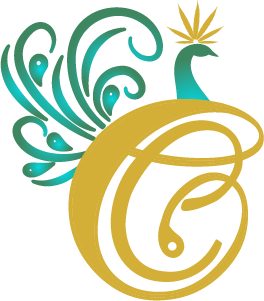
The first time I was asked about my opinion, as a physician, on medical aid in dying (MAID), I really didn’t have one. Larry had presented to the emergency department with severe neck pain. He was an educated, independent, and introverted man who did not like relying on others for help. It was clear to me that coming to the ER to ask for medical assistance had been an internal battle for him. When I gave him the news that he had metastatic cancer, and that the scans showed multiple breaks in his neck from where the cancer was attacking and destroying his spine, he didn’t seem surprised.
After taking a small pause to contemplate the death sentence I had just delivered, I was caught off guard that his next question was not how much time he might have, or was I really sure it was cancer. Instead, he wanted to know what I thought about medical aid in dying. Sitting across from this now dying man, I had to be totally honest:
“I don’t know how I feel. I have never worked in a state where it was legal.”
He went on to tell me that it was legal in California, and he had a friend that had already agreed to get him there and set up the process. Larry must have feared he had cancer for some time. He stared right through me as he spoke: “But I want to die here. Hawaii is my home. I just can’t and won’t be a burden to others. That is worse to me than death.”
Less than two years after Larry died, Hawaii’s governor signed the Our Care, Our Choice Act into law, after it had been debated for over 20 years. As of January 1st, 2019, I now work in a state that provides access to medication, under strict guidelines, for terminal adult patients to end their life. Because of Larry, I have educated myself on this law and can now certainly share my humble opinion.
But first, I want to make sure my readers also understand the logistics. The Our Care, Our Choice Act authorizes the practice of medical aid in dying, in which terminally ill, mentally capable adults, with six months or less to live, can request a doctor’s prescription for medication that would hasten their death. In order to qualify, you must be 18 years or older, a resident of Hawaii, acting voluntarily and capable of self-administering the medical aid-in-dying drug.
Two Hawaii physicians must confirm eligibility, as well as confirm that you are making an informed decision and are voluntarily requesting the medical aid-in-dying medication. Unlike other states, a patient’s mental capacity must also be confirmed by a psychiatrist, psychologist, or licensed clinical social worker.
A person must make a total of three (3) voluntary requests —two oral requests directly to their doctor, at least 20 days apart, and one written request using the state form and signed by two witnesses. A person must then sign and give fully-informed consent, after being given information by their doctor about all other end-of-life options. It is for this reason that I am in full support of this law. It is the only mandate by the state that requires a doctor to talk to their patients about all their options when they are dying.
Unfortunately, it has been my experience that doctors have a hard time having these discussions, and patients often have a hard time hearing that they are dying. No matter whether your physician plans to voluntarily participate in this law or not, it does provide an opportunity to have real, honest conversation and delve deeper into why someone may choose this path.
That is what I was able to do with Larry. We talked about his fears and why he had contemplated medical aid in dying. We talked about what he loved about his life and living in Hawaii. And then I offered several solutions, one of them being hospice care. Larry didn’t understand the concept but was open to learning more. He knew he did not want aggressive medical treatment, and after talking with his primary physician and hospice, he decided to die on the Aina that had supported him most of his life. He chose to let the trained professionals of hospice care for him in his living and his dying.
Larry and I remained in contact. We even became friends. Visiting him over the last few months of his life was such an honor and a gift. Each time I saw him, he was tapping into the simple beauty of rocks and this crazy thing called life, right until his last breath. His pain was controlled, and even when he became bedridden and had to rely on others for simple things that most of us take for granted, such as feeding and using the toilet, he found he was no burden but indeed, a blessing.
Do I think Larry would have used the medication to hasten his death, if he’d had the choice in Hawaii while he was alive? My gut tells me no. But I do believe he would have gone through the decision-making process, and that having the choice would have given him a security that might have even accelerated the deep experiences that he discovered at the end.
Regardless, Larry taught me a very important lesson. Being open and nonjudgmental about someone’s choices or considerations around their dying opens a usually locked door for our society to have real discussion about that very feared word, Death. I hope that more physicians and patients will use our new law as a gateway to at least start the conversation about the inevitable, so we can all live our lives to the fullest.
If you are looking for more information about MAID, I would recommend several websites:
If you are a patient or doctor, and unsure of your own opinion on MAID, need referrals to physicians that are willing to be the attending or consulting physician, or just feel the need to get more information confidentially, please feel free to contact me at charlotte@drchacha.com.
Larry’s last words to me were these: “When I’m over this dying and am better, Dr. Charfen, I’m going to help you, because this work is so important.”
Larry knew he wasn’t getting out alive. He also knew he would be helping me and so many others, simply by the example of how he chose to live and die. RIP Larry.
Image credit: Pixabay
